The feeling is inevitable. Walking through my local downtown, I often stare at the beautiful architecture of historic buildings. Once, they housed generations of family-owned hardware stores, local bars, grocery shops, auto mechanics, etc. But now all I see are insurance companies, dentist offices, and law firms. This continued feeling of disappointment rolls over me as I wish there was something worthwhile to visit inside. Something that treats the craftsmanship and history of the space with considerable care.
For as much attention as I put into my home, I still often look for what has been coined as the “Third Space.” This idea talks about a public space that’s separate from work and home, but offers opportunities for social interactions and rest from our busy lives. I’ve recently been able to find one of these called Switchyards. They say it’s a neighborhood work club or for some, an Italian Soccer Internet Café. They’re a brand that finds these old neighborhood buildings, revives them, and creates within them a space for folks like myself to sit, enjoy, work, and have conversation. I met their founder, Michael Tavani, who told me about his inspiration for the neighborhood work club and why they are a growing need for everyday people. With the intention to inspire members through the design and restoration of historic buildings, Switchyards creates a Third Space for all to find.
The Place: Switchyards
1. What’s the story?
2. What makes you different?
3. What are you hoping to accomplish?
4. Who is Petey?
What’s the story?
If you look back at Switchyards, there have been two distinct chapters in the last decade. Switchyards is 10 years old, but there have been V1 and V2, where V1 was roughly 2014 to 2019. V2 is from 2020 to now. I had started a company called Scoutmob about 15 years ago in Atlanta. We had millions of users across the country, but I actually started dreaming of this idea, which became Switchyards, while I was at Scoutmob.
I loved old buildings. I love physical places. I used to spend a lot of time at this coffee shop, which was, in my opinion, the best coffee shop that Atlanta has ever had. It was the original Octane on the Westside. It was the perfect neighborhood building in the city. When you were there, you’d see Georgia Tech professors, students, tattooed hipsters, moms with strollers, and creatives. Everyone was there.
I noticed that a lot of the Atlanta startup community didn’t have a strong focus on brand. It was focused on Software as a service. Tech in that field can feel soulless. It's almost a game to make money or to sell the product, but not a ton of passion for what the thing is, and not necessarily making the world a better place. But that was never my thing. I wanted to create a physical center of gravity. I wanted to create a physical place that took some inspiration from Octane, which was in an old building, and that was a place where companies could work. There were coworking spaces, but we called ours a club.
I looked at probably 60 buildings, and I pretty quickly realized leasing a space is as scary as buying one. So, I got the idea of, “I'm going to buy the building and figure it out.”
Our downtown location was that building. It looked like a dentist's office from the seventies that had not been renovated at all. Downtown in Atlanta was never really where people were hanging out in the city, but this is where the city started. So I ended up going under contract for this building, and then I had to really figure out the business afterwards. We then opened up Switchyards’ doors officially in 2016, and for those first three years, Switchyards was a business-to-consumer startup hub.
I worked here every day. We were figuring out what this business was going to be. I didn't envision this business being located around the country necessarily. We were simply paying the bills, paying ourselves a minimal salary, keeping the lights on, and operating. Every member of Switchyards got a coffee mug with their name on it, and you left it there. So, the experience was that you come into Switchyards, you grab your cup, you order a cappuccino, and it's part of your membership. That was this magical experience that we were trying to create around the space. We used to have so many people bring their parents, their friends, etc., as an easy place to meet. All of that was happening during this time. I was seeing that this kind of membership coffee shop was effectively pretty cool. At the same time, someone had recommended a book to me called Great Good Place, which coined the term “Third Place.”
Third place is most commonly associated with coffee shops, but could be a library, barbershop, or anywhere where you are around other people, that’s not home or work. The thesis of this book was instrumental for me because I was living it. The writer’s point was that we've lost third place in America, and good things happen at third places. It's where you and I grabbed a cup of coffee and talked about our next idea or start a movement of some kind. Albert Einstein met his friends and they talked about scientific theories at coffee shops. The New York Stock Exchange started at a coffee shop, revolutions, all these things happened at third places. He's like, “If we don't have third places, that stuff's going to go away.”
So my mind started really turning around this time. One of the hallmarks of a great third place is close to where people live. So, I’m like, “Could we take this coffee shop club and put it into residential neighborhoods around Atlanta?” That was the thesis that I had around 2019. So we launched two neighborhood work clubs that year. No offices, maybe a club room to do a meeting, phone booths, and a library. It was working really well for the first six months of launching that product. Switchyards, the company, was years old at that point, but this felt like a reinvention, and that's why it was now V2. Now we're about to open our 22nd location, and that's kind of been the journey of how we got to today.
What makes you different from other spaces?
So our creative director describes it this way. “We've combined our favorite parts of working out of a coffee shop, a college library, and a sexy boutique hotel lobby all under one roof in the country's best residential neighborhoods where people actually live and want to be, open 24/7 and the cost is more like a gym membership. Convenient and always open. Here's your key, you can go whenever you want. Welcome to the club.”
Switchyards is that we took inspiration from other things in the world, and we put our own spin on it. There's a famous quote about how there's nothing new in the world, but it's just all remixes of existing stuff. That's what we did. No one was asking for a neighborhood work club. I always say that the best way to describe Switchyards is to just walk in it for five minutes, and you’ll understand. We realized that work is changing. Then, of course, 2020 accelerated this trend of flexibility that's now up for grabs in terms of where people work, how they work, and when they work. The outdated notion of the nine-to-five in one building for 40 hours a week, sitting at one desk, is crazy. The members of Switchyards in the early days, and still are now, are startups, creatives, freelancers, and entrepreneurs. They're the ones that are working better on the cutting edge. So the main way that Switchyards is different is that we designed this product to be for the individual consumer, for you. It’s not for your company. If you work for the biggest company in the world or you work for yourself, it's designed for you, the individual. Historically, office space and where you work were what your company paid for. So we created a product that was at the $100 price point that we think you're gonna choose to join, almost the same way you'd join a gym. Never really before a decade or so ago has the individual worker even had the choice of where they're gonna work. Because that wasn't an option. Switchyards is a third place to work. We steal a little bit from the office and a little bit from your home. Because neither of those are optimal solutions. So that's the main difference, is that it was designed for the individual. Priced that way, branded that way, the language is that way, everything about it. Go to the website, you sign up, you can use the place within a day, and it's $100 a month. It's very simple to understand, you get everything. The office wasn't an inspiring place, in our opinion. So we built this thing on the chassis of coffee shops that we love, hotel lobbies that we love, libraries that we love, places where people are already spending time, naturally. Then we built the design for work. So, tons of outlets, blazing fast internet, really good coffee, always open, so you don't have to choose to leave here at five. Always open on the weekends too, if you're a night owl or whatever. So, you know, really designed for those parts, which nothing else that we saw in the world was designed that way. It's nuanced, but cool.
What is Switchyards hoping to accomplish?
We think every great iconic residential neighborhood deserves a work club, and if they don't have one yet, our vision is to add to it. It's meant to be this escape for just a couple of hours. It's not a 40-hour workweek office. It's not an office replacement. If you're an individual worker who just needs an escape close to where you live for a couple of hours a week, that's exactly what we are. We're defining what this thing is, and the reason why I say that is, that we’re going to be making up our own rules. For example, we just released our “Club Paper.” Like, papers are dying, right? But we love paper, so we made one. We have magazines and books all over our clubs. The grandiose vision may be to be the leader of work clubs, but along the way, we can do anything we want to in order to create an interesting experience.
We ask, “How can we add more value to your membership? How do we make this thing even more delightful? How do we make this thing a huge part of your week?” We want you to walk in and you physically feel something. For you to feel inspired when you’re here.
Someone asked our creative director, Brandon, “Why do you have a pair of size 22 shoes hanging from the rafters?” Brandon's response was “Because we couldn't find a pair of size 24.” There's no real reason to have that. No one told us, “If you hang up a pair of shoes, you will make more money.” That's not why we're doing it. We're doing it because it makes us smile. It's fun, it's weird, it’s different. There are so many neighborhoods in the country that just don't have this sort of place.
Who is Petey?
Petey's our little neighborhood mutt. He’s named after the former basketball player, Pistol Pete. We just dreamed up that we needed a mascot, and we wanted it to be a dog. We wanted a dog that wears high-top basketball shoes. Like a Smokey the Bear kind of thing for us. He’s just been this extra element and layer to the brand. He’s got some fun lines here and there, but he’s sprinkled around.
The Person: Michael Tavani
1. Who is Michael?
2. What is an Italian Soccer Internet Cafe?
3. Favorite Soccer Team?
4. Favorite Work Club?
5. Brands That Inspire You?
Who is Michael?
I grew up in Atlanta. I don't love the word entrepreneur, because I think sometimes it means like serial entrepreneur, as if you're just starting things, but you're not building something great. I have two older brothers who are a high school teacher and a soccer coach, and one's in sales. We have the same DNA, but I just always had this thing that's totally different than them, and from anyone, even in my family, that was this kind of creative streak. I'm really a brand and a creative person, but it's not just doing art for art's sake. I love the notion of seeing something that doesn't exist in the world and then putting it out there and seeing if people want it. I have this quote, “Being good in business is the most fascinating kind of art. Making money is art, and working is art, and good business is the best art,” which is from Andy Warhol. I’ve always wanted to create a brand. I never wanted to create a business that made money for money's sake. I always wanted to create a product that I would use myself, and that my friends could use.
I went to the University of Georgia, and I had no clue what I wanted to do until I was 27. I used to like to make films when I was a kid. I'd take my dad's video camera and make little skits with friends. I majored in film and journalism at Georgia, and I thought that's what I wanted to do, but there was something that wasn't there. But when I was around 27, I ended up going to law school, where I had some jobs that I wasn't super fulfilled with. I worked for the Atlanta Hawks for a little bit. I was the lowest person on the totem pole there. I just had a variety of odds and ends jobs after college, but really hadn't found myself. I actually think this was probably the hardest time in my career. I had this creativity in me, but I'm young, I don't have a lot of experience, I don't have a lot of exposure, and I don't have any money to start anything. So I just hadn’t found my footing yet.
I always say that when you have an idea, and you tell a friend about it, they usually can't see it and experience it, and they're going to be like, “That's crazy” or “Michael's crazy” and so it's a tough period of time until you've done it, but you know you have to do it. That’s how it was with Switchyards. Now I think what I do is respected amongst friends of mine. But for many years, it was like, “What is he doing?” And that's hard, because I think the reality is unless you have a really strong backbone or spine to be like, “this is what I was born to do, and this is what I should be doing, and I don't care that this isn't the conventional path, and I don't care that it might look like I'm unemployed right now, or I don't care that I'm starting a company, and in reality I haven't made a dollar in two years, so I'm effectively unemployed, but I'm working on this creative project.” That's why it's hard to pursue this kind of path. But for me, this was the path that I was born to do. No one told me to do it. There was no playbook to do it.
This brings so much fulfillment and joy to me, and it's a creative endeavor, and I just wanna do this for the rest of my life. It was not a commercial success at first, and no one was using it, but I was happy.
I just kind of had to find my way, and I think the reality is, most people don't find their way. Most of my friends haven't found their way, and probably won't ever find their way, professionally. I'm actually working every day on my hobby by doing this.
If I were paid zero dollars, and I was just doing this for fun, the way some people do gardening, or photography, or running, or whatever, I’d still be doing it. It just so happens to also be my job, and a career, and something that I'm gonna do for a long time. I'm grateful and lucky that I found it, but I do think that's been the defining story that's run through my life.
I have no metric that I'm trying to hit. I just want to share this art form with more people. I want more people to use it, because what's worth more to me than money is when I get a text message from a friend saying, “I just went to Switchyards today, and it was unbelievable!” I know your question was more on the personal side, but I can't separate out work and personal. I've basically poured everything into this and family, and that's pretty much my life’s work.
What is an Italian Soccer Internet cafe?
So our creative director, I'll give him props, Brandon Hinman, helped come up with this description. We worked with Radio Roasters in Decatur to bring coffee to the club, and when we were creating our own blend, dark roast and medium roast, he was playing around with names. He would joke around that the way to describe Switchyards is an “Italian soccer internet cafe.”
Internet cafes are old. They're nostalgic. They're from the 90s. It's where I used to go to literally log onto the internet. So we started using that line a little bit. Then, we have just always loved Italian culture and soccer culture. So we just kind of mashed those together, and we really leaned into it.
Favorite Soccer Team?
So, I'm Italian. My dad was born in Italy. I never had a professional team that I loved. So really, it was Italy, the national team. My two favorite players growing up were, first off, a guy named Paolo Maldini. He was a six-foot-three, tan-skinned, Italian soccer player with amazing hair that I didn't have and just flowed perfectly. He was kind of like my idol growing up as a soccer player. Then the second one was a more famous guy named Roberto Baggio. He was smaller, number 10. Italy was my team because of my dad, and really, the first team that I've ever had in any sport. I grew up in Atlanta, and then to have a soccer team come here as an adult and to have the ability to adopt in on day one was cool.
One of the coffees is named “Italian Soccer Internet Cafe.” Really inspired by my dad and our love of soccer. As a company, we love the soccer culture, Italian culture, and coffee culture, so I'm very proud of the Italian part of that.
Current Favorite Work Club?
That’s like choosing my favorite kid. You probably could do it, but it's hard. I'll just name a few that stand out, not even as favorites necessarily, but from a distinction perspective.
The most recent Atlanta club that we've opened is Avondale Estates, and I think it's amongst our best work. We really leaned into this idea that it's actually the physical manifestation of an Italian soccer internet cafe. I feel like that one stands out to me in that we took what was formerly a welder shop, but basically an unused industrial building. There's grit all over the place. We came in and did our design touch, and then that creates this thing where when you walk in, you're like, “holy s***, this is so well done.” It's not the most epic building in the world by any means. It's really just a type of building that exists everywhere in the country. A former nondescript warehouse space. So, I just think it's distinctive for that.
Westside is in a beautiful building. I wish I could live in that building. Huge steel windows with tons of light coming in, brick walls, just a beautiful, stunning building, and a pitched roof. When we can find those, we try to move in.
Downtown is where it started. It's the legacy Switchyards. Just like how Chick-fil-A has the Dwarf House. That's what Downtown is for, Switchyards. That building has always been near and dear to my heart because it was where this company started, and our office is here.
In Nashville, we opened up in a neighborhood called Eastwood. The club is in a 1928 former church. It’s just an epic Switchyards. If I could walk you into any of the locations right now, and you had never been to one before, it'd be that one. It's iconic, and it's in the center of this residential neighborhood. It was sitting empty for 12 years, and we're in the sanctuary of the church, with 40-foot ceilings. That was also our first one outside of Atlanta.
We're in a former grocery store in Charlotte. Just the coolest building that you could imagine. Two floors. We leaned into the fact that this was a little neighborhood grocery store back in the day. Old building, dilapidated.
Adair Park in Atlanta. We're in a former elementary school gymnasium. 1910. Unbelievable building. Such cool history.
Cabbagetown is busy. If I could walk you into any club, and immediately within 30 seconds, you’d be able to say, “This is what a neighborhood work club is.” It would be Cabbagetown.
The last one I'd say is Chamblee, because it’s the one closest to my house. That one's kind of near and dear to my heart, because I end up doing a lot of meetings there. It was somewhat of our first suburban location, further out from the city. It's between a furniture warehouse and an air gas facility. You have this sexy library, boutique hotel lobby, and coffee shop in the center of two industrial buildings on a side street.
Brands that inspire you?
I'm obsessive about brand and being inspired by things. When I go to a new city, whether it's New York or a small city, I'm taking a lot of photos. I'm just observing lots of different things and always thinking about how I incorporate them into Switchyards.
I have at the top, the best of the best when it comes to brands. I don't know if these are my five favorite brands in the world, but I think they are the ones that are the best business-wise. Those brands would be Nike, Airbnb, Costco, Starbucks, and Patagonia. All of these are founder-led companies originally, but they became something by breaking the rules and doing it their way. I could probably give you fifty or more, but those are some of the best.
Recommendations:
1. What does it mean to be "made with soul?"
2. Startup Tips?
How does one “make with soul?”
Soul is making decisions from your gut. Making human decisions. Some people would say the point of business is to make money, impact the world, and create something people want. There are different definitions of it. But if you make every decision with a spreadsheet, then it has no soul. If everyone else who has a spreadsheet can arrive at the same conclusion, then it's not human. It begins to have no personality. The irony is that the business is going to die over time. Someone might say, “We’re making the most prudent financial decision,” or “we're making a smart business decision here because it's in the spreadsheet.” I'd argue that over time, that business will die, which is actually the worst financial decision. I think I heard the founder of Crate & Barrel say, “A business that lives in a spreadsheet is a science project. And a business that is all art is an art project. And I don't wanna be either one of those. I wanna be right in the middle." So you need both. I think soul is art and science combined. Science is the economics of a business, the black and white parts of a business. While soul is much more the art side of the business.
I just think the best decisions that any business makes are human beings making a decision that is delightful, magical, makes you smile, or simply makes you feel something. Those are the best decisions. And it’s those decisions that usually end up making money.
The interesting thing is that two of the companies that I think have historically had some of the best brands, Nike and Starbucks, lost their soul in the last five or 10 years. They're now trying to find it again. As a result, both businesses' financials have gotten worse. The reason why they lost their soul is that they started making a lot of business decisions purely based on transactions and finances, and numbers. Now it can't be all soul, but it can't be all black and white finance decisions that are soulless, so you gotta have both.
As long as I'm at Switchyards, as the founder and CEO, this company's gonna have soul. One of the first things that Switchyards ever did as a company, ever, is I came up with the phrase “made with soul in Atlanta,” because I was wearing a pair of glasses that said “made in Italy,” and I'm like, “you never see made in Atlanta.” When something is made in Italy, it usually designates a level of quality. So, I was thinking to myself, “All right, how could we make it in Atlanta?” That was the first thing we ever did in 2014.
Tips for startups?
Follow your gut, don't overthink it, work really hard, live the brand, be the brand. Your judgment matters a ton, but the only way you get judgment is with more experience, and the only way you get more experience is by trying things. Follow any momentum that you get. If you see any signs of life after all that, follow it and hit it hard, and then have a lot of fun along the way. Everything is a work in progress. There is no perfection. It's never obvious going forward. Switchyards wasn’t, but it's becoming obvious when we look back, but we had to jump out of the airplane first and figure it out on the way down. I really think everyone's winging it, and that’s probably my best piece of advice.
“See you around the club”- Petey
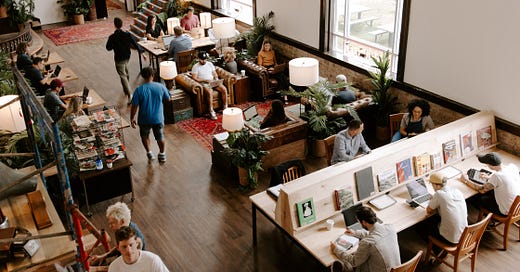



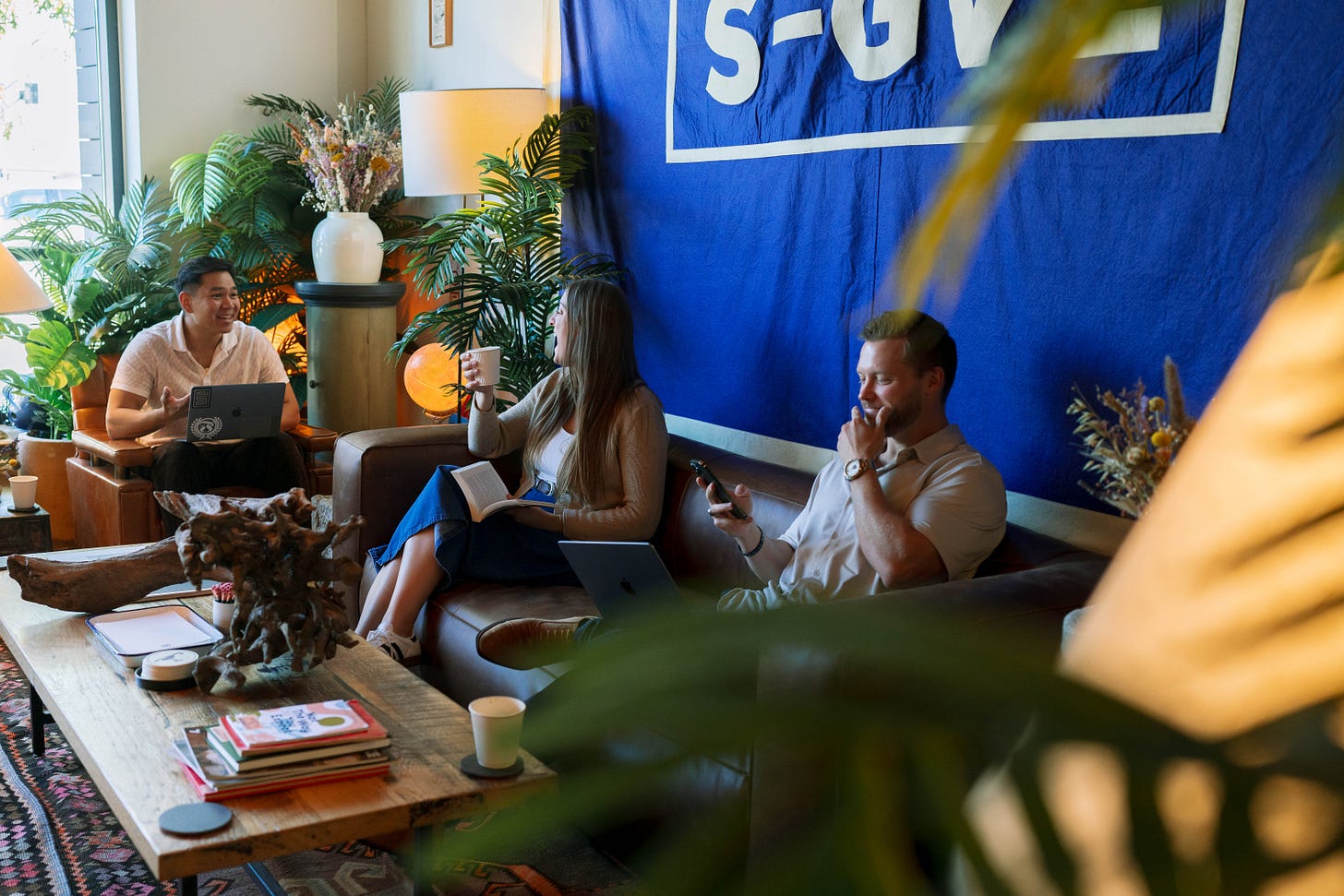
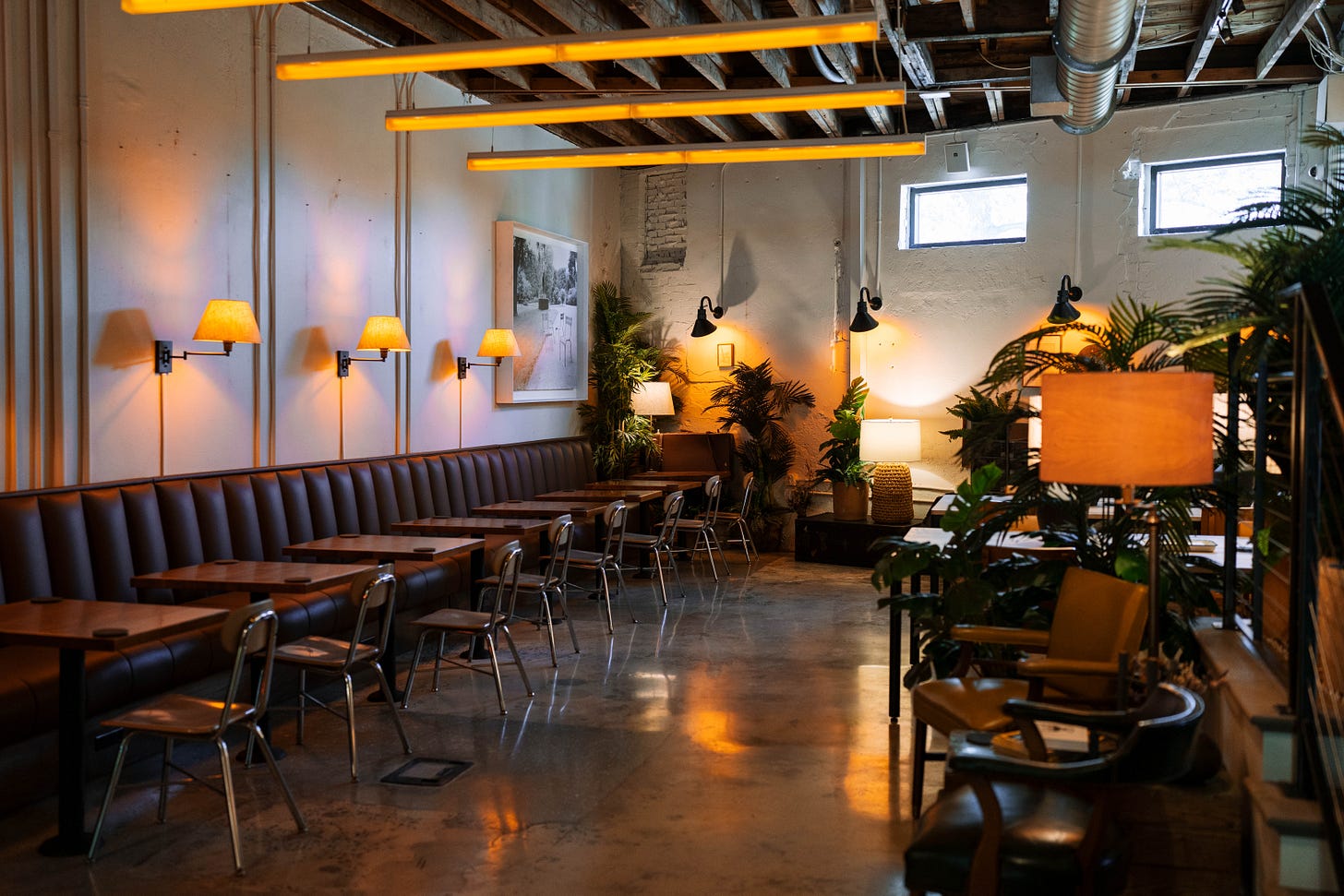
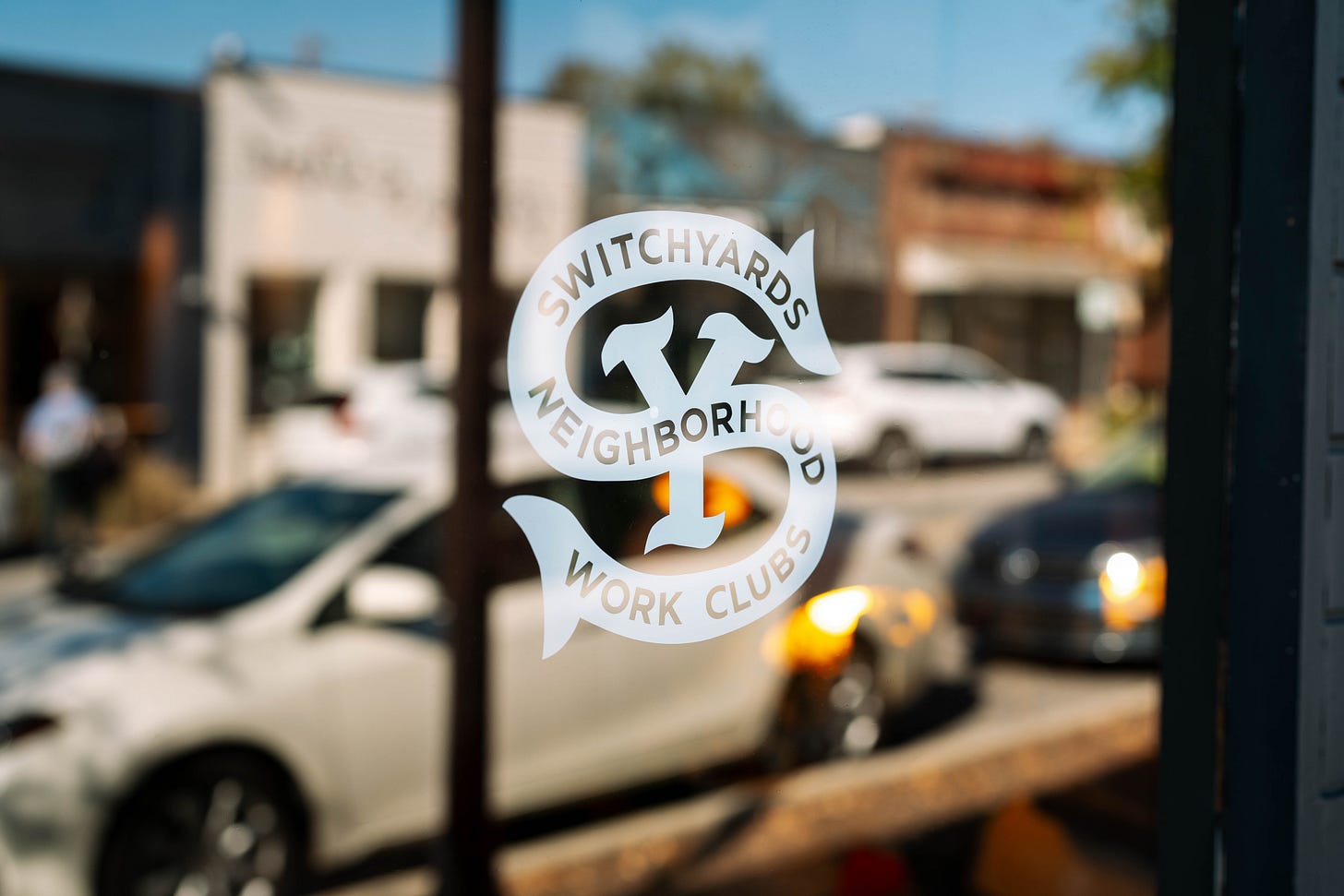

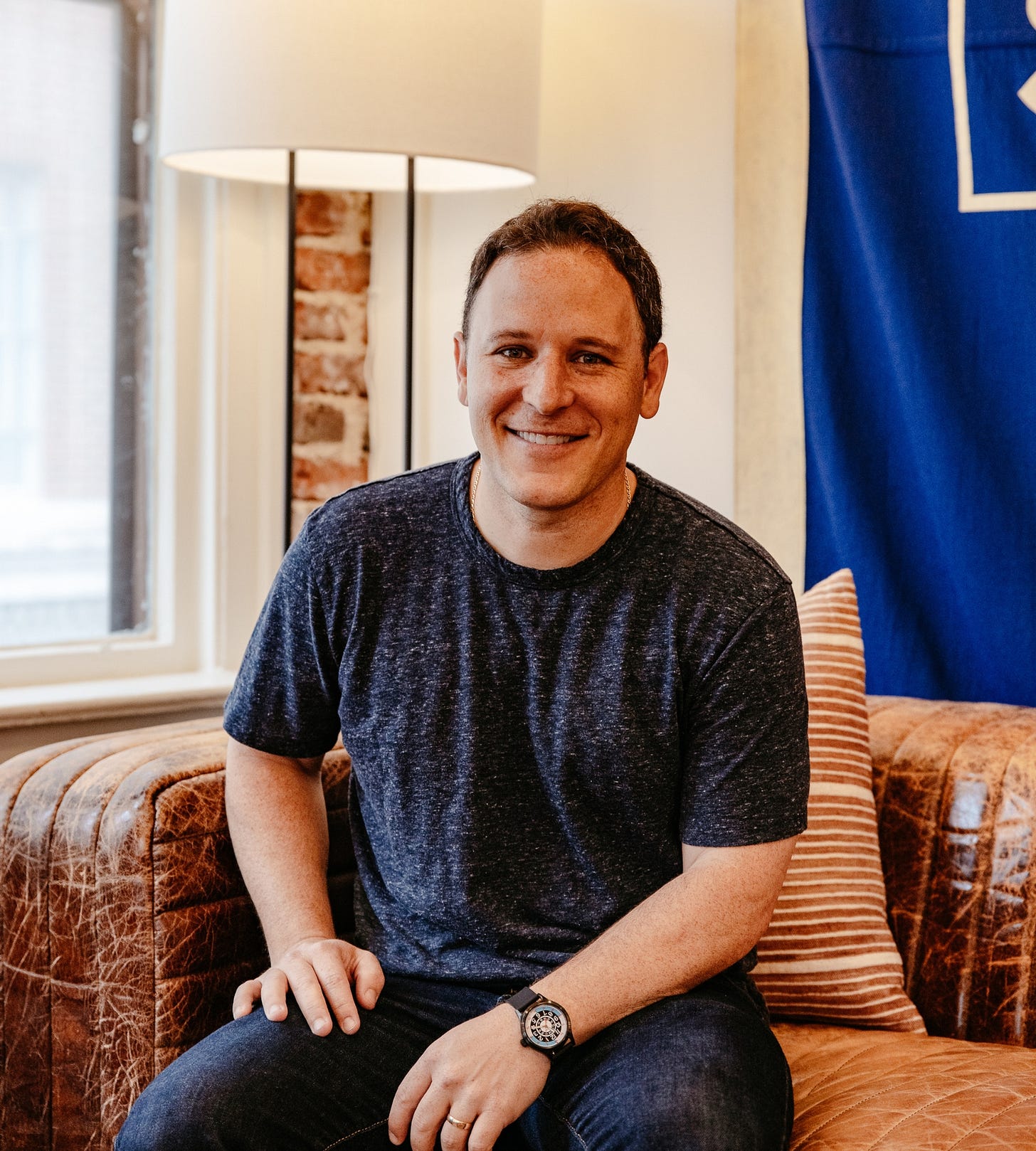
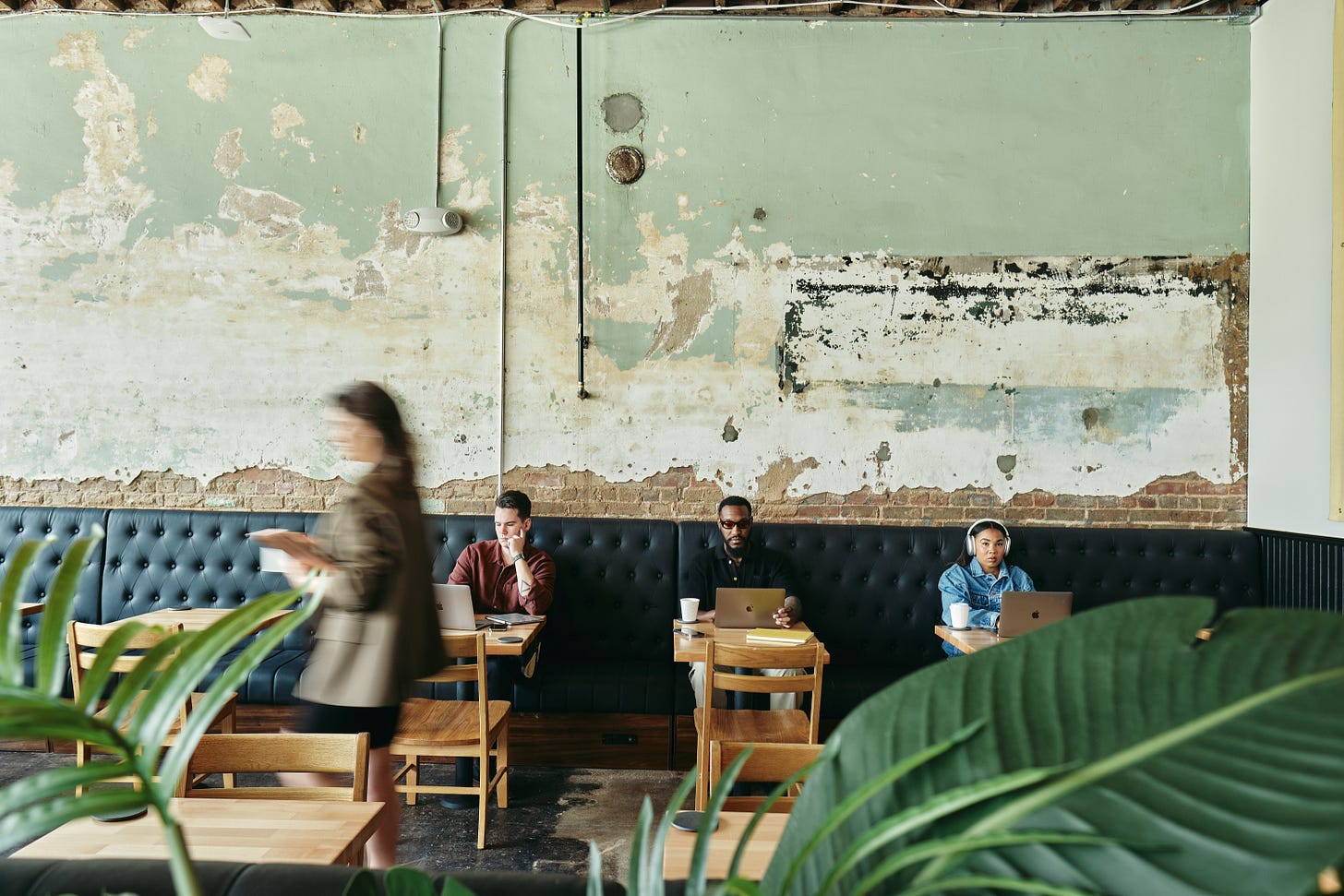
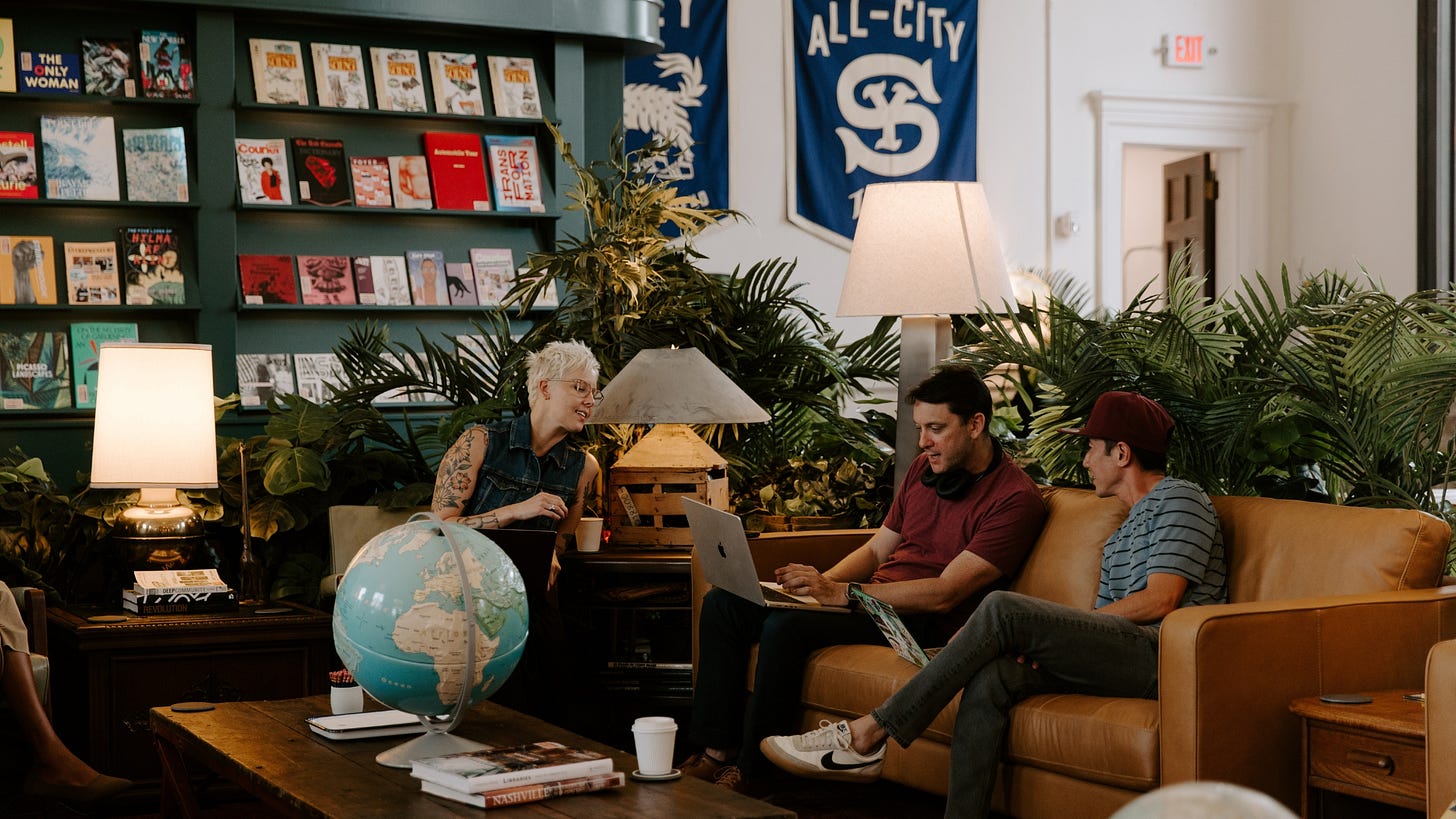
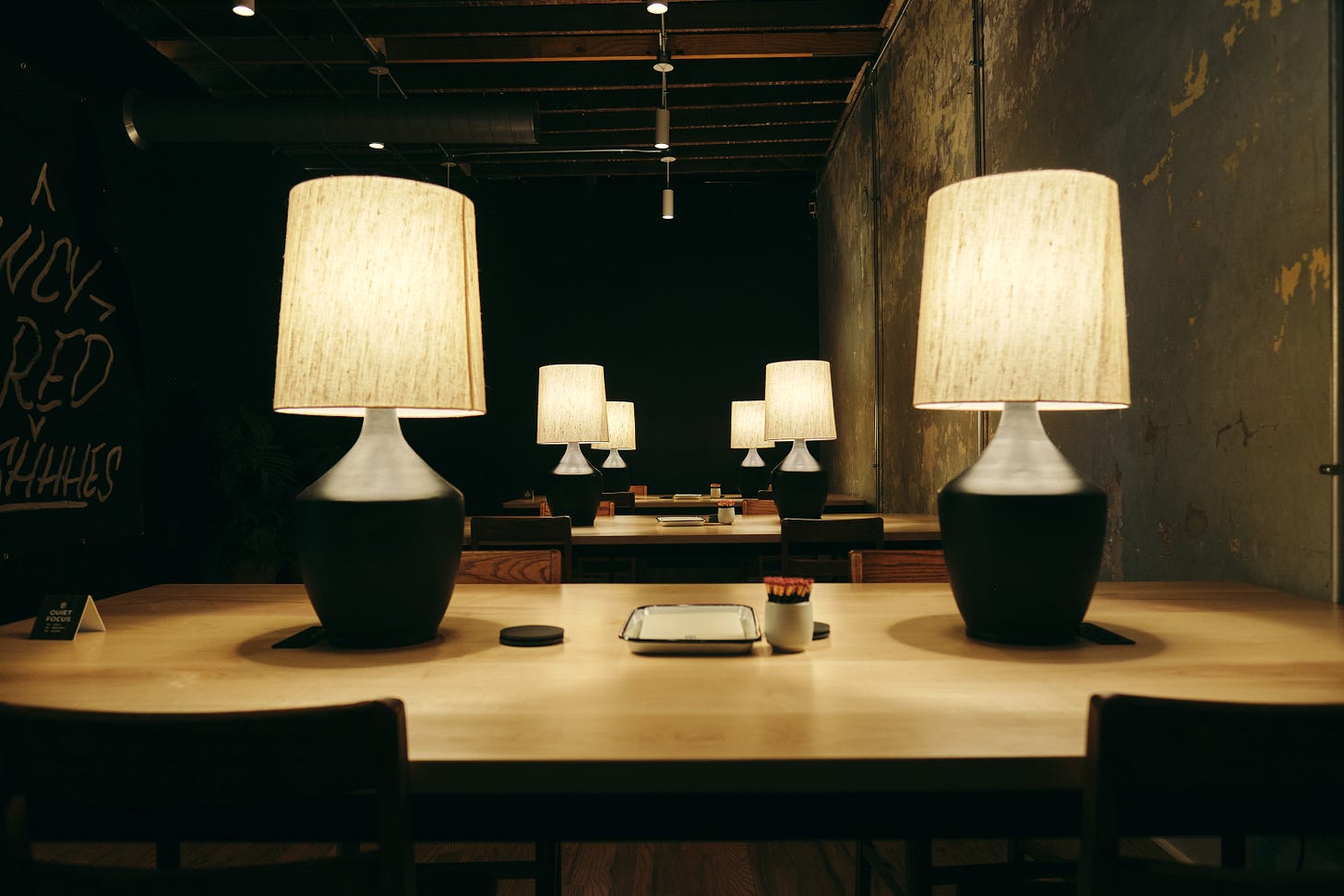
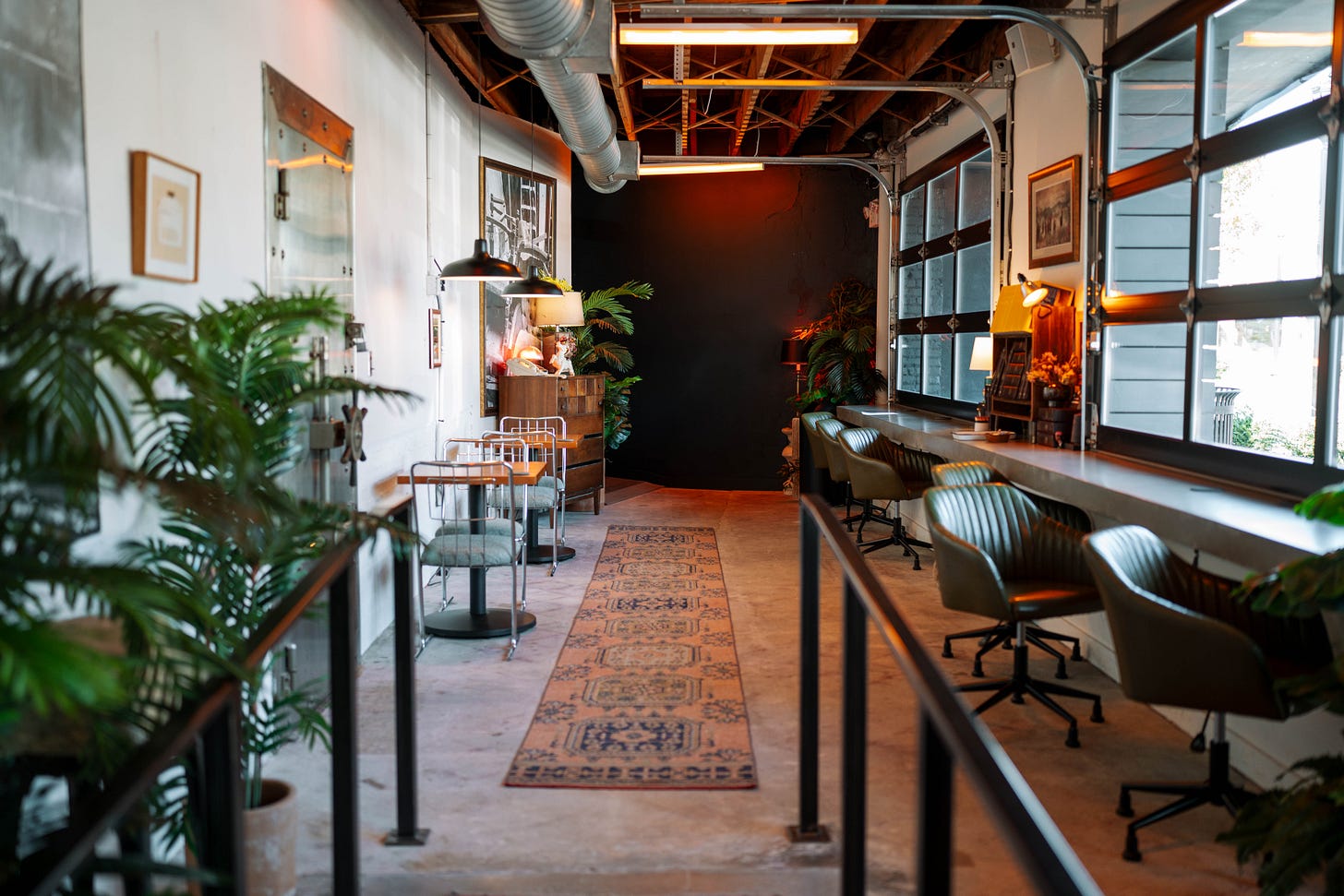
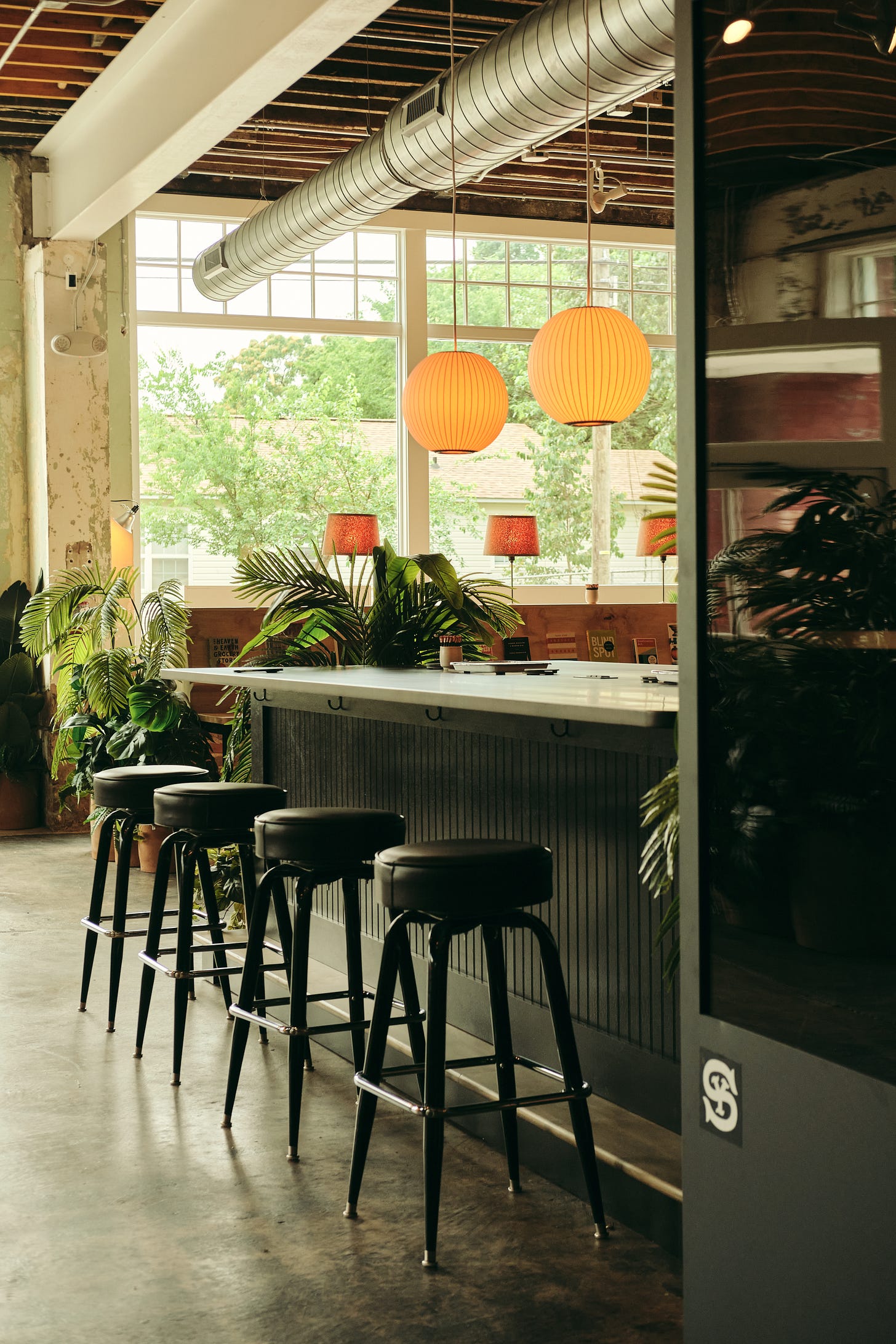
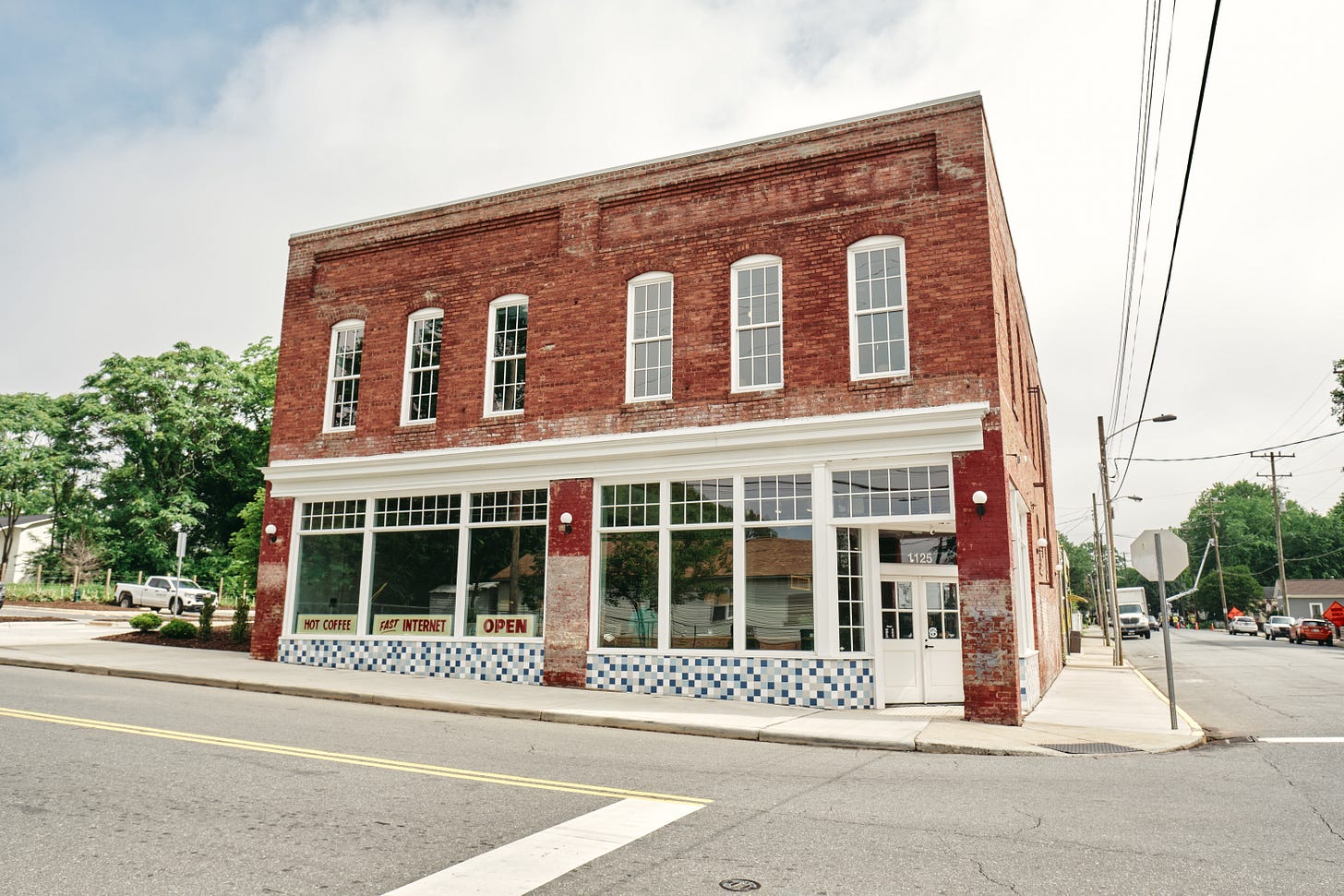


What a great interview about Switchyards! The inspiration about being made with soul in Atlanta was really interesting to learn.